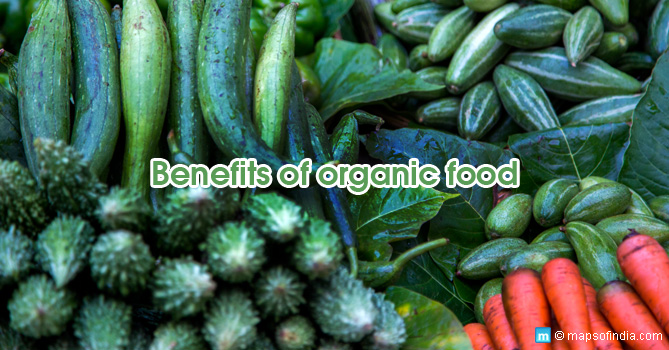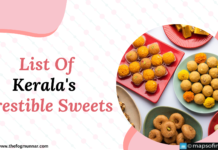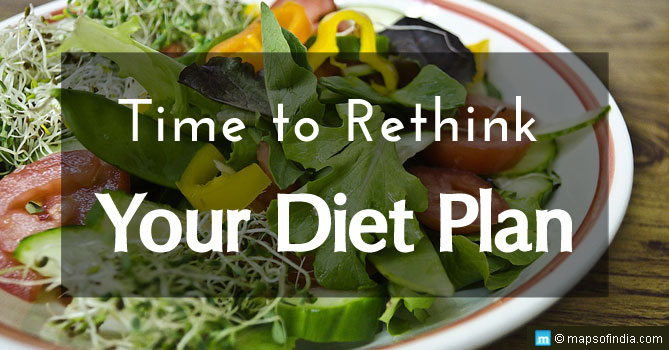Food that has been produced without the use of synthetic fertilisers, pesticides, ionizing radiation, sewage sludge and genetically modified organisms may be termed as organic food. In the meat sector, organic food includes produce that has not been induced with antibiotics and growth hormones. In short, organic food comprises produce that has been grown using environmentally friendly means. Inorganic Foods use synthetics like chemical fertilizers and pesticides during the production process. The food items are genetically modified through cross breeding so as to get hardier strains and greater quantities of produce. With the population increasing by leaps and bounds, producers, to keep up with the demand-supply chain have resorted to production of inorganic food. However, these inorganic foods contain lesser nutrients and may not be safe in the long run. Studies also show that the chemicals used during inorganic farming will harm the land resulting in making it infertile or less fertile.
The Advantages of Organic Food
- It is healthy and safe to eat as no chemical and pesticides are used for the same.
- Animal welfare is taken into consideration in Organic farming and thus grown in a conducive environment.
- Organic farming ensures the sustainability of the health of the soil.
- Lack of chemicals in organic farming also ensures that the environment is safe and no pollutants are released into the air we breathe or the waterways.
- This method also helps in reducing the greenhouse effect by increasing soil carbon.
- Organic farming supports a greater number of species.
Grow your own Organic Food
There is no doubt in the fact that organic farming is good for humans as well as nature. However, production of organic food is more expensive than inorganic food items. Even though organic food is healthier, it may be difficult for most people to afford it, and opting for organic food may endanger our monthly budget. However, we can help ourselves and the environment by growing our own organic food for consumption. We do not need agricultural lands or large kitchen gardens for the same. It can be done in the balcony or the terrace of the house that one is residing in. Here are a few pointers on how to grow your own organic food.
Preparations
- The first step is to get a compost heap ready from where you will get healthy nutrition for your soil in the form of manure.
- For the compost heap, find a corner in your terrace and make a pile of grass and leaves. To this add coffee grounds and filters, fruit and vegetable peels (no onion peels to be included), tea bags, fruit cores etc. Throw a handful of dirt on top of the pile and stir it with a shovel. Nature will do the rest.
- You can also get manures from herbivorous livestock.
- Empty your pots and planters of all the old soil and fill them with the fresh soil full of organic nutrients.
- Use horticultural oils, neem powder, garlic and pepper sprays as insecticides.
- Remember to choose plants like salad greens, wheat grass, basil etc, keeping in mind the lack of space and also easy to grow plants.
Plants to Grow at Home
- Select a few onions which have started sprouting. Bury them in a 5-litre bottle filled with the prepared soil with the sprouts sticking out of holes made on the sides of the bottle. Water regularly. You will soon have fresh organic spring onions.
- Plant a few garlic cloves with pointed tip facing up in a pot and place on a sunny windowsill watering it regularly. Green garlicky shoots emerge in a week or so which can be harvested with the help of scissors and used in cooking.
- Plant a few wheat grains in small containers. Water regularly and within a week to 10 days you will have wheatgrass for use.
- Take a few coriander seeds. Soak them overnight and in the morning lightly press them to break them into 2. Sow these in the soil in your pot which is broad. Ensure enough sunlight and water in the mornings. In 10 to 15 days time you will get fresh organic coriander leaves. Best season to grow Coriander is June to July and October to November.
- Mint leaves are very easy to grow in a pot. You just require a few cuttings. Plant the cuttings in the pot and within a few days you will have a never ending supply of fresh mint.
- Thyme, rosemary, lavender and sage, basil, chive, parsley or cilantro need moderate sun and watering. These can be grown in pots in the terrace garden.
- For tomatoes, choose a sunny spot for this plant thrives on eight to 10 hours of sunshine. Scoop out the seeds of a tomato or just cut slices and place in cups filled with soil till they sprout. Transfer the 1 inch sprouts to a large pot with rich garden soil which should be replenished with kitchen waste, earthworms and egg shells. With good care you should have a good supply of organic tomatoes. April is the best month for growing tomatoes in India.
- Brinjal can also be grown in the same manner as tomatoes. This plant thrives well in the months December-January and May-June.
Conclusion
Gardening in itself is a therapy that reduces the stress levels in an individual. Apart from the production of organic vegetables, the activity will also help in keeping one healthy. So make use of the nooks and corners and balconies in your house which receive sunlight and grow your own organic vegetables. Stay fit. Stay Healthy.
Explore More :
India’s Organic Food Revolution
Organic Products Business in India





